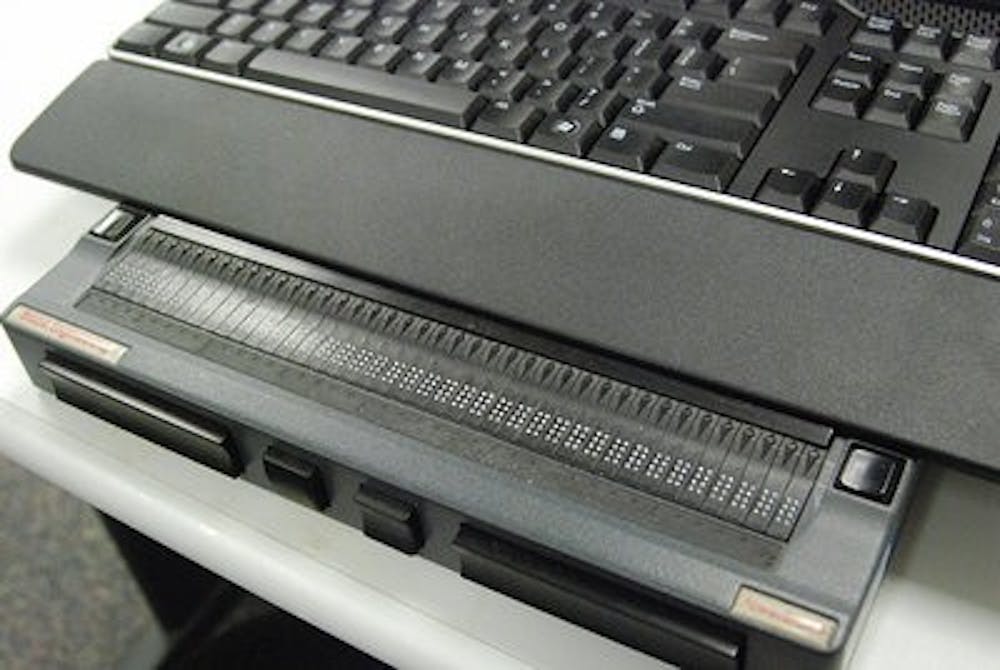Auburn University's Office of Accessibility's purpose is to support students living with mental or physical disabilities as they pursue a higher education.
According to Tina Gilbert, assistive technology specialist, one of its most useful tools is assistive technology.
"It can help improve the functional capabilities of people with disabilities," Gilbert said. "It could be something as simple as a computer software that helps blind students read. It can be a range of things. A magnifying glass, a laptop or even wheelchairs or walkers."
Gilbert said the University does everything in its power to help students with disabilities reach their full potential.
"When a student is registered with our office, and they have assistive technology as one of their accommodations, they can either bring in their own assistive technology or we can supply it for them," Gilbert said. "We have computer programs, hearing aids and tape recorders for students to go back and listen to lectures. Whatever a student needs, we can provide. If we do not have it, we can buy it or borrow it from another university."
The Assistive Technology Act of 1998 defines assistive technology as "products, devices or equipment, whether acquired commercially, modified or customized, that are used to maintain, increase or improve the functional capabilities of individuals with disabilities."
R. Clay Yarbrough, instructional technology specialist, said there is a more simple definition for what this technology does.
"Assistive technology really just levels the playing field for students with disabilities," Yarbrough said. "It helps them access the same technology that everyone else does, in a way that is more beneficial to what they need. Overall, I have seen it leave a pretty positive impact. It helps students with disabilities with whatever they are trying to do, or whatever they are trying to obtain at Auburn University."
The University has always been active with assistive technology, and the Alabama Assistive Technology Expo & Conference (ALATEC) was held in Auburn just last year.
Laura Smith is a disability specialist and AEP coordinator.
Smith said most Auburn students use assistive technology everyday, and they do not even realize it.
"A great example of a person using assistive technology is anyone that has a brand new smartphone," Smith said. "They have tons of assistive technology features. The phone will tell you what page you are looking at, it will read your texts or emails out loud, and it does many other helpful things. The smartphones are very accessible for people with sensory impairments."
Smith said she has seen assistive technology at work on a personal level.
"My husband has severe hearing loss, and he depends on closed captions to be able to be able to watch what he wants on television," Smith said.
According to Smith, technology for people with disabilities is growing at an astounding rate.
"We have access to things I never [thought] anyone we would have access to," Smith said. "This is really just a phenomenal time to live in."
Do you like this story? The Plainsman doesn't accept money from tuition or student fees, and we don't charge a subscription fee. But you can donate to support The Plainsman.





